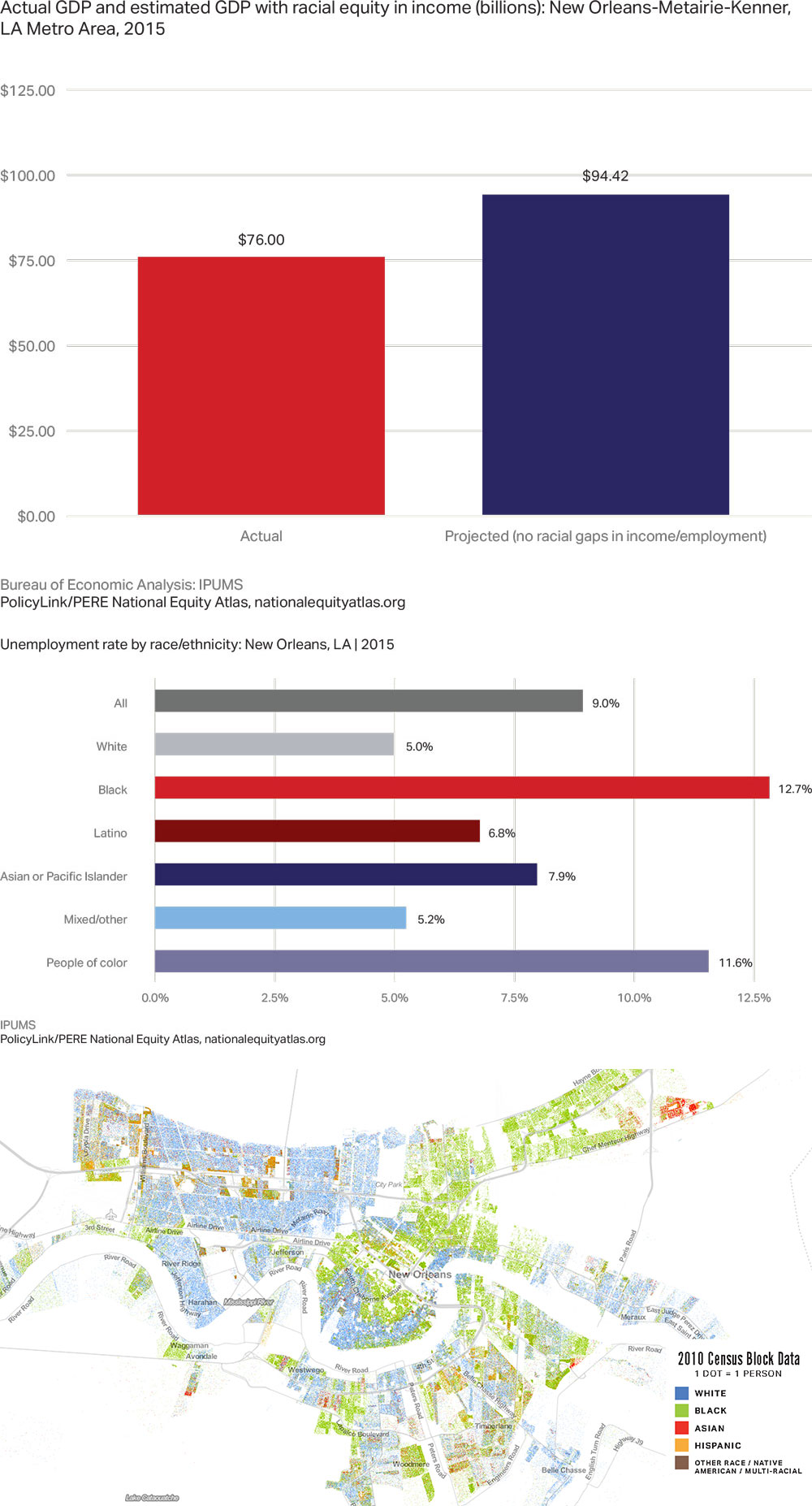Where We’ve Been
New Orleans, LA

New Orleans is a city rich in culture and traditions, a blend of the best aspects of several diverse cultural and ethnic groups over its 300-year history. And, like many cities in the Deep South, it has deep-seated issues around race, equity, poverty and violence. In 2005, Hurricane Katrina exposed many of these issues for the world to see. A deeply prideful city, after years of determination and hard work, New Orleans has turned a corner in its recovery from that storm and is building a stronger and more resilient community. Yet, inequity remains. Katrina disproportionately impacted black residents in New Orleans, who were displaced and did not possess the means to rebuild and chose not to return.
According to the U.S. Census Bureau’s 2017 population estimates, there are now 91,274 fewer black residents living in New Orleans compared to 2000, with the share of the 2017 population that was black down to 59 percent. Racial economic gaps are wide and persistent in New Orleans. The median hourly wage for white workers is $24 versus $15 for people of color. In New Orleans, we held focus groups where we heard the opinions of college-educated black and white residents and non-college-educated black residents. Learn more by reading the full report.
